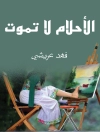Providing a decolonial, action-focused account of Yoga philosophy, this practical work from Dr. Shyam Ranganathan, pioneering scholar in the field of Indian moral philosophy, focuses on the South Asian tradition to explore what Yoga was like prior to colonization. It challenges teachers and trainees to reflect on the impact of Western colonialism on Yoga as well as understand Yoga as the original decolonial practice in a way that is accessible.
Each chapter takes the reader through a journey of sources and traditions, beginning with an investigation into the colonial -Platonic and Aristotelian- approaches to pedagogy in colonized yoga spaces, through contrary, ancient philosophies of South Asia, such as Jainism, Buddhism, Sankhya, and various forms of Vedanta, to sources of Yoga, including the Upanisads, Yoga Sutra, Bhagavad Gita and Hatha Yoga Pradipika. With discussions of the precolonial philosophy of Yoga, its relationship to social justice, and modern postural yoga’s relationship with colonial trauma, this is a comprehensive guide for any yoga teacher or trainee to activate and synergize their practice. Supplementary online resources bring the text to life, making this the perfect text for yoga teacher trainings.
Про автора
Dr Shyam Ranganathan (MA South Asian Studies, MA and Ph D Philosophy) is a field-changing researcher, scholar, author, and teacher of philosophy, and an expert in the neglected traditions of Indian moral philosophy, including Yoga. He translated Patañjali’s Yoga Sutra (Penguin 2008). Dr Ranganathan founded Yoga Philosophy, a scholar practitioner initiative, to bring anti-colonial, anti-Eurocentric, research-based knowledge about Yoga and Philosophy to practitioners. He is a yoga teacher (E-RHT-500 and CYA-RYT Gold). He is a member of the Department of Philosophy, and York Center for Asian Research, at York University, Toronto.












